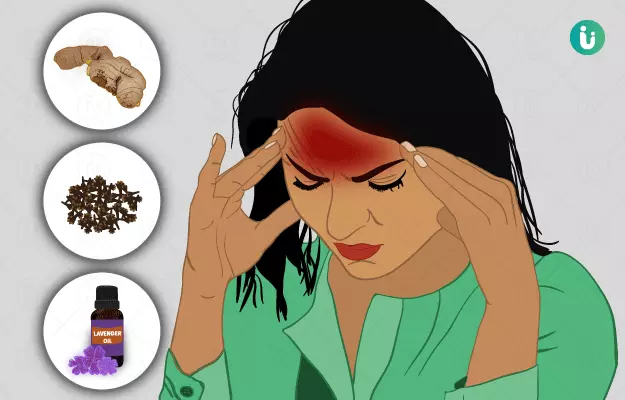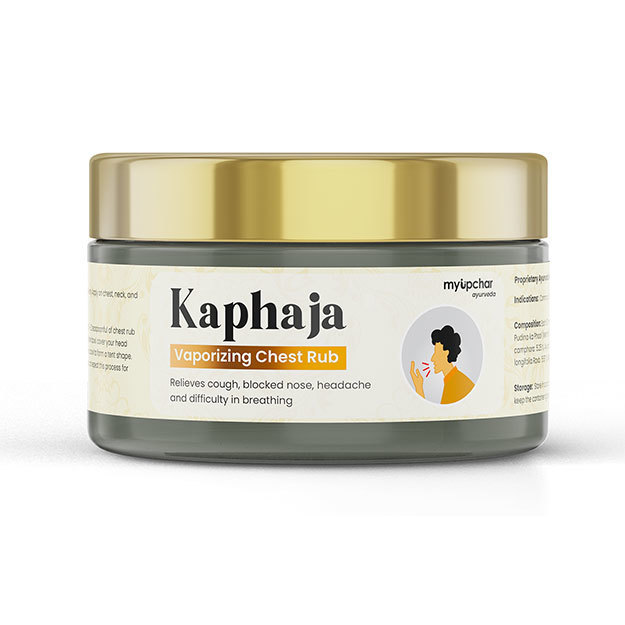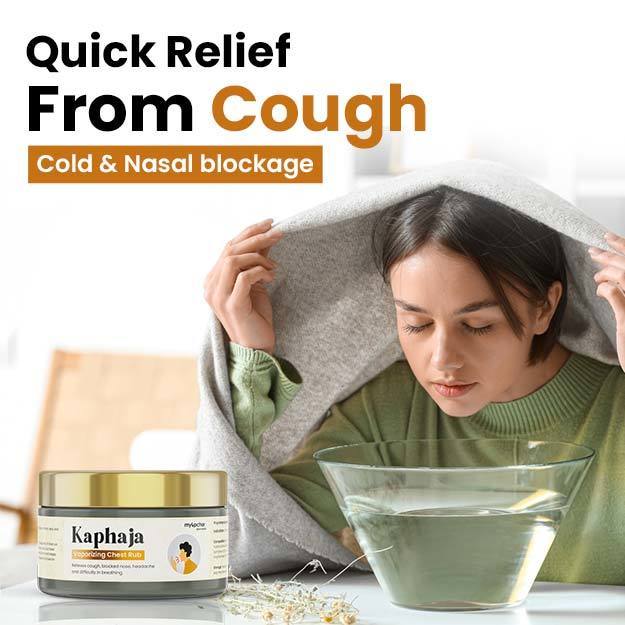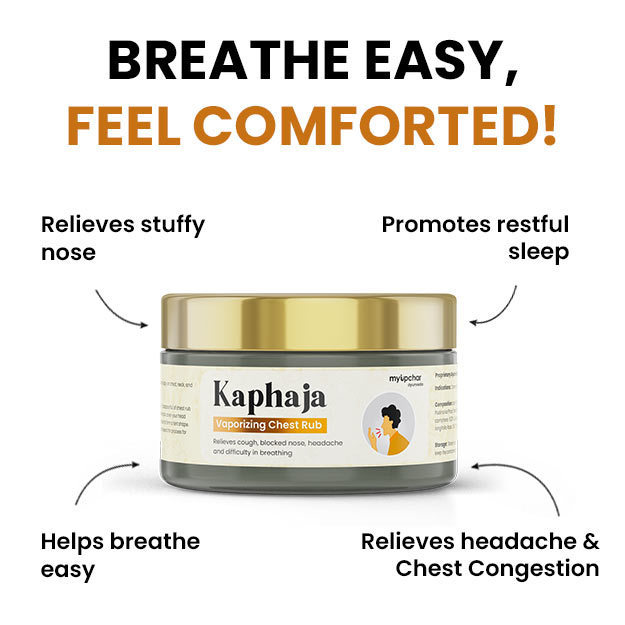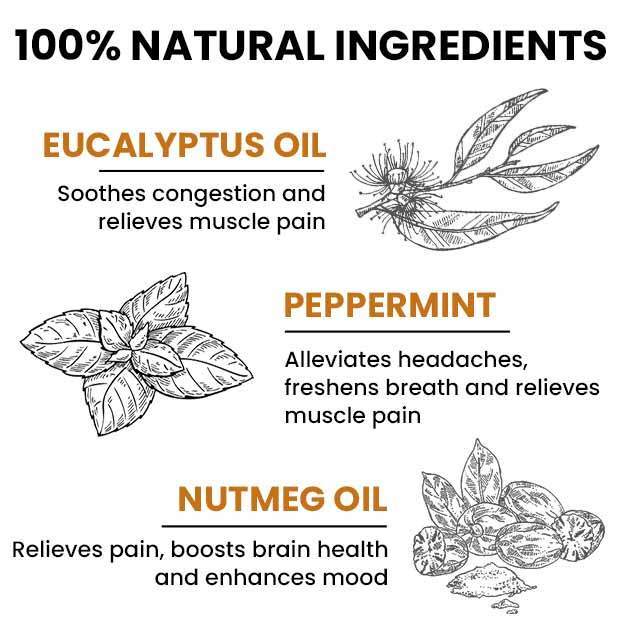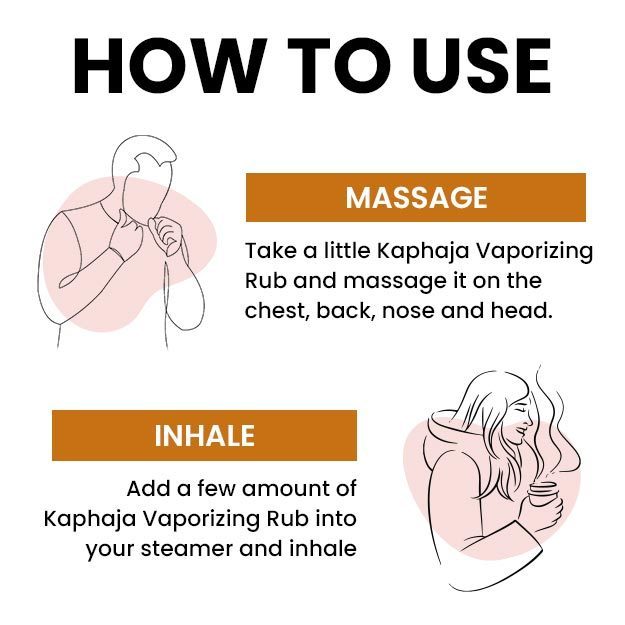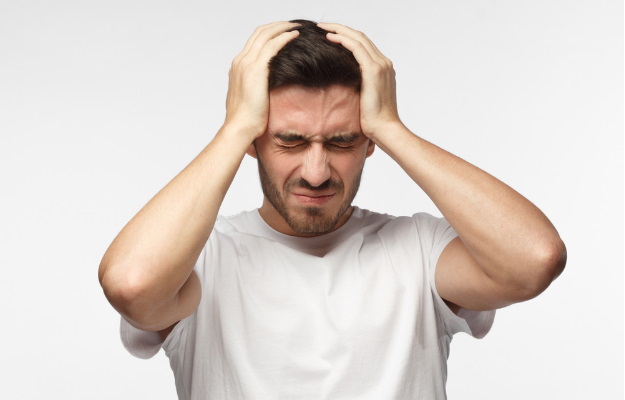Headache ambiguously refers to the feeling of pain, discomfort or tenderness in any area of the head, scalp or the neck.
Different individuals experience headache differently. It may range from a mild, occasional pain to a more severe and chronic form of headache. This pain can be constantly dull or episodic and sharp experienced with throbbing.
Headache may affect a particular region, like the forehead, the temple region, the back of the head or the entire area of the head. Some people may even experience this pain being referred to the neck, eyes or the ear, while others may report a stiffness in the shoulders.
Over the counter medications have always been available for the management of headaches, but they have several side effects.
So, the focus of this article is on simple home remedies, which will help you to manage a headache in the long term without relying on relief medications that have been proven to be addictive. For persistent chronic pain, it is essential to determine the aetiology and seek medical help. Following are some of the most effective home remedies for acute headaches:
- Warm water in the morning for reducing headaches
- Menthol rub for curing headaches
- Caffeine for relieving headaches
- Ginger for headache cure
- Essential oils for relieving headaches
- Cold compress to relieve migraine headaches
- Stress alleviation for headache relief
- Diet to prevent headaches
- Banana as a headache reliever
- Regulate your sleep cycle for relief from headache
- Vitamins for headaches
Warm water in the morning for reducing headaches
Our bodies are usually dehydrated in the morning due to water deprivation during sleep hours. This is inevitable unless you have a diminished sleep or get up several times at night to have a glass of water. In both these cases, you are likely to suffer from headache with the cause lying in either dehydration or a disturbed sleep.
To avoid this, you are recommended to have a glass of water as soon as you wake up. This is the cheapest and simplest home remedy you can easily do each morning to prevent or cure aches.
Studies have found that migraine attacks are more severe during the morning.
Another set of studies suggest that water deprivation has a potential role in these attacks.
So, you are highly likely to be benefitted from having a glass of water in the morning. However, you may opt for having it at the right temperature. Having a glass of cold water can aggravate migraine attacks, especially in women.
So, it is advised to opt for a glass of warm water as soon as you wake up.
Menthol rub for curing headaches
Menthol is a white or rather transparent crystalline substance, which melts above the room temperature. This property allows it to be incorporated easily into oils and rubs.
Studies have found that menthol solution is highly efficacious for the treatment of migraine pain. The pain relief achievable with the topical application of menthol solution was more sustainable along with sound pain-free periods. Further, it helped to reduce the sensitivity to light and sound in the participants of the study, and also helped in alleviating associated symptoms of nausea and vomiting.
So, it can be said that menthol solution or rub is a powerful remedy for migraine, but, how exactly do you use it?
The temperature sensitive properties of menthol make it easy to be used as a home remedy. You can simply take a few crystals of menthol and put them in heated coconut oil, then stir.
You are suggested to apply this oil on your forehead and temple area for the best results. Alternatively, you can purchase a commercially available balm and apply it in the same areas. These balms are well known for their analgesic actions.
Caffeine for relieving headaches
Caffeine is a substance naturally present in tea and coffee, which is commonly employed as a remedy for pain relief.
Several studies have confirmed the role of caffeine in the treatment of headache, stating that it acts as a mild analgesic for pain relief. Other than that, it has also been identified as an adjuvant to the drug therapy for headaches.
However, researchers have warned against regular or excessive consumption of caffeine, which is likely to cause caffeine dependence, the withdrawal then causes severe headaches.
So, you are advised to have a hot brew of coffee or tea during an episode of headache but you must to strictly refrain from its daily consumption to keep your best health.
Ginger for headache cure
Ginger has long been used for the treatment of headaches, with its mention being found in the Ayurvedic literature.
Several studies have affirmed the use of ginger for the treatment and prevention of migraine attacks, claiming ginger to have a similar efficacy as some potential drugs used for migraine treatment. In these studies, immediate improvements in symptoms of headaches were observed after the administration of ginger extract, with the alleviation of pain occurring within 2 hours.
These studies have even recommended the addition of ginger extract to existing pain relief medications due to better patient response, satisfaction and fewer side effects.
To use ginger for the treatment of migraine, you can make ginger tea by simply adding fresh ginger extract to a warm cup of water.
See Similar Category Medicines Here
Essential oils for relieving headaches
Essential oils are the basis of aromatherapy, made from the aromatic parts of different plants. They have an overall soothing and relaxing effect.
Studies have demonstrated that peppermint oil, eucalyptus oil and ethanol have significant effects on the process of the pathophysiology of pain.
Another study revealed that the inhalation of lavender oil helps in effective management of acute episodes of migraine headaches.
Essential oils are easily available online. All you have to do is inhale them for obtaining relief from headaches. Doterra is one of the good brands to choose.
Cold compress to relieve migraine headaches
Cold compress has long been used for seeking relief from migraine pain.
A study conducted on 55 participants made the use of a flexible neck wrap containing ice packs to determine the effects of cold compress on the mechanism of pain.
The study elicited that the application of cold compress targeting the carotid artery in the area of the neck significantly catered to pain reduction. This finding suggests the use of cold compress as an effective home remedy.
You may make the use of this therapy by applying an ice pack to your neck, or by investing in a neck wrap, which can hold the pack in place for a longer duration. This remedy can be held for about half an hour until pain alleviation is achieved. It is also important to begin this therapy at the onset of pain for better results.
Stress alleviation for headache relief
Psychological stress has been recognised as a possible cause of headaches, and is even known to trigger migraine attacks. So, stress management paves way for a healthy lifestyle and aids in pain reduction.
Evidence suggests that individuals who practice meditation each day experience a 37% drop in the incidence of headaches. Meditation has also proven to be a successful long-term cure for headaches.
While considering what type of meditation, it must be pointed out that most of the researchers have emphasised on the practice of mindfulness for seeking relief from headaches. It reduces the intensity of pain in patients and has been employed as a promising therapy for the long-term management of headaches.
Spiritual meditation, on the other hand, improves pain tolerance reducing the dependence on analgesics and other medications.
But, what is mindfulness?
Mindfulness refers to the practice of utmost awareness of the surroundings by being fully immersed in the moment of the present. With relation to pain, it refers to being fully aware of the pain.
How can you practice mindfulness at home for headache relief?
It does not require any special equipment. Just choose one time and a place to practice each day and allow your mind to be completely soaked in the moment of the present. It is important to not judge at these times, and to get back to this state in case your mind begins to wander.
While the role of meditation and mindfulness has been well recognised, there are other methods of stress reduction, which include maintaining a healthy diet, exercising regularly and pursuing a favourite hobby. This is likely to aid in stress removal and headache reduction.
Diet to prevent headaches
Diet has a very significant role in the pathogenesis of headache, particularly that of migraine.
Certain food items are known to precipitate migraine attacks and it is the best to avoid these. This happens due to sensitivity to certain food items, which tends to become an intolerance with the course of time.
Some of these foods are alcoholic beverages, particularly red wine, caffeinated beverages (when consumed regularly), canned products containing added flavours like MSGs, strong smelling additives present in food, citrus fruits, aged or strong cheese, fried foods, processed meats like bacon, hot dogs, salami and ham, meat, pork, seafood. Sour cream, yogurt, chocolates and nuts, extremely cold food items like ice cold water or ice cream are also triggers for some.
Since skin allergy testing is generally not positive for these foods, an allergy can only be identified or ruled out by maintaining a track.
So, you may like to keep a food diary, in which you can record all the food items you consume during a week along with your response towards them. This will make it easier to identify and eliminate these ‘foods triggers’ from your diet.
Banana as a headache reliever
Banana, which is a rich source of magnesium, is commonly used as a headache buster, as recommended by experts. Having a banana will help in stabilising blood sugar levels, keeping headaches at bay. It is also a good alternative for sweet cravings since sugar, chocolates and caffeinated beverages are known to induce headaches.
Several studies have demonstrated that magnesium deficiency is very common in migraine affected individuals, as compared to healthy counterparts. This is due to their inability to absorb magnesium, its increased excretion and wasting. Stress further increases the excretion of magnesium and stress levels have found to be higher in migraine patients. So, taking a magnesium supplement is likely to help with headaches.
For these reasons, oral magnesium therapy is often begun in migraine patients as an empirical treatment.
While it is not advisable to start taking a supplement without your doctor’s consult, it is recommended to eat a banana if you perceive a migraine attack.
Regulate your sleep cycle for relief from headache
Studies have found that having an irregular sleep pattern, or diminished sleep quality or quantity is likely to precipitate headache and migraine attacks.
To avoid this, it is recommended to follow a healthy sleep pattern and maintain a normal schedule.
Migraine attacks and headache in general, are more common after a sleepless night. Similarly, a change in the sleeping pattern is likely to trigger attacks. Due to sleep disturbances, headaches, particularly those of the migraine type, are commonly experienced in the mornings.
So, it is best to follow a fixed schedule and wake up and sleep at the same time each day.
Concerning the quantity of sleep, it is advisable to stick to the window of 7 to 9 hours since a prolonged sleep has similar side effects as poor or diminished sleep.
Vitamins for headaches
Vitamins are micronutrients which have several functions in our body and help in the regulation of several mechanisms. The role of certain vitamins, particularly B complex vitamins like vitamin B6 (pyridoxine), B12 (cobalamin), B9 (folate) has been recognised in the management of migraine attacks.
Individual studies have suggested that folate helps in reducing the frequency of headaches, particularly in women, while pyridoxine helps in reducing the severity of pain and the duration of migraine attacks in patients. To achieve the combined benefits from these components, a vitamin B complex supplement may be prescribed.
Other than the B group, vitamin C may also have a role in reducing inflammation in migraine patients, thereby reducing pain. A supplement or a dietary modulation may help in this regard. But, it is essential to be wary of the correct sources of vitamin C since citrus fruits like orange, lemon, sweet lime, kinnow, lime, mandarin orange, grapefruit, tangerine are likely to precipitate migraine attack because of the strong odours. So, it is recommended to go for other vitamin C sources like guava, kiwi, potatoes, broccoli or tomato.
References
- National Institute of Neurological Disorders and Stroke [Internet] Maryland, United States; Headache: Hope Through Research.
- Borhani Haghighi A et al. Cutaneous application of menthol 10% solution as an abortive treatment of migraine without aura: a randomised, double-blind, placebo-controlled, crossed-over study. Int J Clin Pract. 2010 Mar;64(4):451-6. PMID: 20456191
- Richard B. Lipton et al. Caffeine in the management of patients with headache. J Headache Pain. 2017; 18(1): 107. PMID: 29067618
- Shapiro RE. Caffeine and headaches. Curr Pain Headache Rep. 2008 Aug;12(4):311-5. PMID: 18625110
- Mustafa T, Srivastava KC. Ginger (Zingiber officinale) in migraine headache. J Ethnopharmacol. 1990 Jul;29(3):267-73. PMID: 2214812
- Maghbooli M et al. Comparison between the efficacy of ginger and sumatriptan in the ablative treatment of the common migraine. Phytother Res. 2014 Mar;28(3):412-5. PMID: 23657930
- Martins LB et al. Double-blind placebo-controlled randomized clinical trial of ginger ( Zingiber officinale Rosc.) addition in migraine acute treatment. Cephalalgia. 2019 Jan;39(1):68-76. PMID: 29768938
- Göbel H, Schmidt G, Dworschak M, Stolze H, Heuss D. Essential plant oils and headache mechanisms. Phytomedicine. 1995 Oct;2(2):93-102. PMID: 23196150
- Sasannejad P et al. Lavender essential oil in the treatment of migraine headache: a placebo-controlled clinical trial. Eur Neurol. 2012;67(5):288-91. PMID: 22517298
- Gu Q et al. Mindfulness Meditation for Primary Headache Pain: A Meta-Analysis. Chin Med J (Engl). 2018 Apr 5;131(7):829-838. PMID: 29578127
- Qiang Gu, Jin-Chao Hou, Xiang-Ming Fang. Mindfulness Meditation for Primary Headache Pain: A Meta-Analysis. Chin Med J (Engl). 2018 Apr 5; 131(7): 829–838. PMID: 29578127
- Amy B Wachholtz, MDiv, MS, Christopher D Malone, Kenneth I Pargament. Effect of Different Meditation Types on Migraine Headache Medication Use. Behav Med. 2017 Jan-Mar; 43(1): 1–8. PMID: 25864906
- Health Harvard Publishing. Harvard Medical School [Internet]. Headache: When to worry, what to do. Harvard University, Cambridge, Massachusetts.
- American Nutrition Association. The Role Diet Migraine Headaches. [Internet]
- Munvar Miya Shaik, Siew Hua Gan. Vitamin Supplementation as Possible Prophylactic Treatment against Migraine with Aura and Menstrual Migraine. Biomed Res Int. 2015; 2015: 469529. PMID: 25815319
- Omid Sadeghi et al. Effects of pyridoxine supplementation on severity, frequency and duration of migraine attacks in migraine patients with aura: A double-blind randomized clinical trial study in Iran. Iran J Neurol. 2015 Apr 4; 14(2): 74–80. PMID: 26056551

